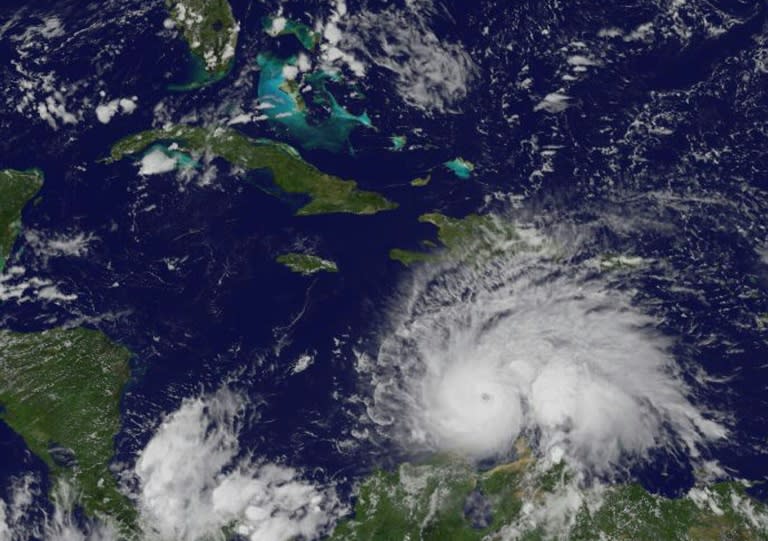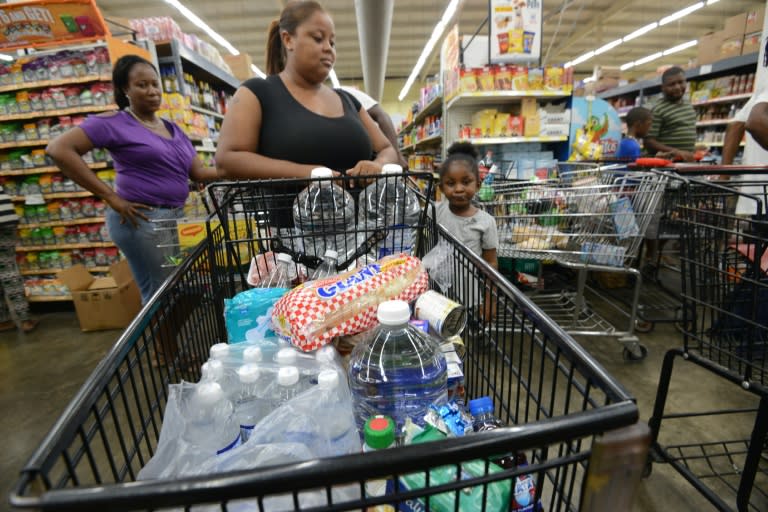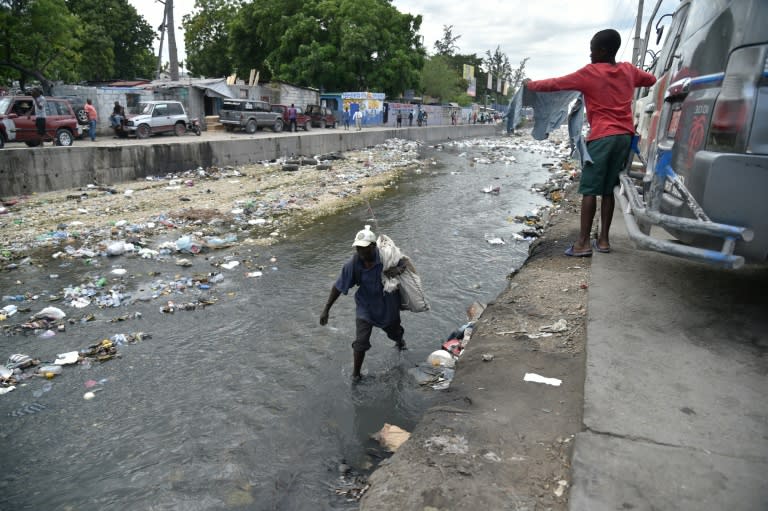Hurricane Matthew churns north towards Haiti, Jamaica
Hurricane Matthew, the most powerful Caribbean storm in a decade, churned towards Haiti, Jamaica and Cuba on Sunday on a path forecasters said could take it to the eastern United States. At 0600 GMT "powerful Matthew" was "moving slowly north-northwestward" from the Caribbean coast of Colombia and Venezuela at a speed of six miles (nine kilometers) per hour, the Miami-based National Hurricane Center said. Briefly a furious Category 5 storm at the top of the 1-5 Saffir-Simpson scale late Friday, Matthew has now weakened into a still dangerous Category 4 hurricane. That makes it the strongest Caribbean storm since Hurricane Felix in 2007. On its current forecast track Matthew's center on Monday will glance past Jamaica -- dumping heavy rain on the island -- as it makes landfall on Haiti. The storm is then expected to continue north, tearing across southern and eastern Cuba between Monday and Tuesday as it heads towards the Bahamas. Matthew was located 350 miles (560 kilometers) south-southwest of the Haitian capital Port-au-Prince, and the same distance southeast of Kingston, Jamaica, the NHC said at 0600 GMT. The hurricane is forecast to dump 15 to 25 inches of rain over southern Haiti, "with possible isolated maximum amounts of 40 inches." The storm is also expected to drop 10 to 20 inches (25-50 cm) of rain over eastern Jamaica, the Dominican Republic, and eastern Cuba, "with possible isolated maximum amounts of 25 inches (64 centimeters)." "This rainfall will likely produce life-threatening flash floods and mud slides," it warned. Matthew was packing winds of 150 miles (240 kilometers) per hour, with higher gusts. Current weather models showed it could eventually affect the US mainland. "It is too soon to rule out possible hurricane impacts from Matthew in Florida," the NHC said. - Haiti, Jamaica batten down - Jamaicans waited in long lines at supermarkets, hardware stores and gas stations Saturday to stock up on essentials before the storm's arrival. "This is not a joking matter," Desmond McKenzie, minister of local government and community development, warned island residents. "There is no room for any mischief to be made as we face one of the most severe natural disasters in quite a long while," he said. Some Jamaicans said that in the past they had hunkered down with supplies only to see the storm to pass. "I am tired of wasting my money buying food, gas, boarding up my house," said Michael Franklin, a taxi driver in Montego Bay. "Then all we get is just a lot of rain and we can't get back our money," he said. McKenzie said that authorities were placing some 2,000 homeless people in shelters, and the country's garbage collectors were working around the clock to remove waste from streets and open areas. He also said the army and army reserves were called up to help limit the damage, as hospitals throughout the island of almost three million people stood ready. Prime Minister Andrew Holness toured areas of Montego Bay to check on preparations, and some Caribbean Airlines flights were cancelled. The US Embassy in Jamaica said it would be closed Monday and Tuesday for consular services "due to the anticipated effects of Hurricane Matthew." The US State Department also authorized non-essential personnel and diplomatic family members to leave Jamaica "due to the increasing strength" of the hurricane. It also urged US citizens "to depart Jamaica if possible." In Haiti, authorities late Saturday increased the alert level from orange to the maximum red. The country is home to almost 11 million people, many living in fragile housing in the poorest country in the Americas. Haitian officials warned southern island residents that they were "first at risk" and urged them to prepare. "We invite them to secure the area surrounding their homes and begin to stock up on water and food," said Edgar Celestin, a spokesman for the Haitian civil protection agency.





